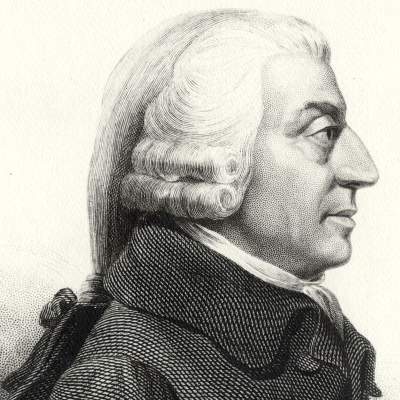
Birthdate: 5th June 1723
Nationality: Scottish
Bio:
Adam Smith was born in 1723 in Kirkcaldy, Scotland. He came from a prosperous family and received a scholarship to attend the University of Glasgow where he studied moral philosophy. It was here that Smith began developing his theories on economics and morality that would later become hallmarks of his work. After graduating from the University of Glasgow in 1740, Smith continued his studies as a fellow of Balliol College, Oxford from 1740 to 1746.
In 1751, Smith was appointed professor of logic at the University of Glasgow, a post he occupied for 11 years. It was during his time as a professor that Smith began working on his masterwork, An Inquiry into the Nature and Causes of the Wealth of Nations, which was published in 1776. This seminal work is considered the first modern treatise on economics and established Smith as the father of modern economics. In The Wealth of Nations, Smith puts forth his theory of free market economics and argued against government intervention into economic affairs.
After publishing The Wealth of Nations, Smith accepted a lucrative job as the tutor to the wealthy young Duke of Buccleuch. He spent the next two years traveling across Europe with his pupil on an educational tour. During this time, Smith continued refining and developing his economic theories. In his later years, Smith also wrote The Theory of Moral Sentiments, which was published in 1759. This work explored ethics and psychology and established Smith as a social philosopher as well.
Adam Smith spent the last two decades of his life in Kirkcaldy, Scotland. During this time he revised The Wealth of Nations and produced other works as well. However, much of Smith’s later work remained unpublished at the time of his death in 1790 at the age of 67. He never married and had no children, but Smith left a profound legacy as the father of modern economics and one of the most influential thinkers of the Scottish Enlightenment. Smith’s works had a significant impact and helped lay the foundation for future social and economic studies.

